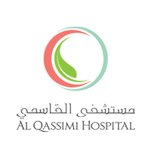History and Services
The Cardiac Catheterization facility at Al Qassimi Hospital was established in 2003 as a multidisciplinary model for the prevention, treatment and eradication of heart diseases. The Laboratory is currently one of the busiest interventional catheterization laboratories and a regional resource centre for cardiac emergency care in Sharjah and the Northern Emirates of the United Arab Emirates, and has been established as a tertiary centre for complex coronary and vascular interventions.
The facility is committed to developing and adopting the universal use of innovative, evidence-based, standardized medical protocols. The high quality of cardiac catheterization care that it provides to its patients is reflected in its statistics of highest survival rate with least complications.
The volume of diagnostic catheterization and interventional procedures at the Laboratory has experienced substantial growth over the last five-years in every aspect of cardiac procedure, making Al Qassimi Hospital’s Cardiac Catheterization Laboratory one of the busiest in the UAE. The rise in total interventions is coupled with further declines in already low rates of death and major complications.
Infrastructure
The ‘Cath Lab’ has two state-of-the-art procedure rooms with Siemens and Philips equipments, a room with two control units, a six-bedded recovery room, one intravascular ultrasound room and Rotablator.
All equipments and facilities are upgraded and equipped with the latest technology in order to be able to provide a high quality of care. Equal preference is given to nationals and non-nationals for treatment purposes. The ‘Cath Lab’ is committed to the universal use of innovative, evidence-based, standardized medical protocols and promotes financial services support for needy patients. Translation services are available for Arabic, English, Hindim Filipino, Russian and Bangladeshi languages.
In 2011, 282 nationals and 1034 non-nationals were treated. The ‘Catheter Lab’ defines quality as a ‘comprehensive look at all aspects of a patient’s experience’, and there is annual
auditing by the Hospital’s Quality Improvement Committee. Preparations are taking place for a Joint Commission International Accreditation review. Data regarding quality is benchmarked to other government hospitals and used to help direct future internal quality improvement initiatives.
Clinical Facilities
The Lab covers 11 Government hospitals and referrals from private hospitals in Sharjah and the Northern Emirates, and primary coronary interventions are performed 24 hours a day, 7 days a week for patients from these regions.
The ‘Cath Lab’ undertakes primary and secondary interventions as well as emergency pacemaker implantations. The diagnostic and therapeutic services offered by the facility include coronary angiography, peripheral angiography, pediatric cardiac catheterization, renal angiography, electrophysiology studies and radio frequency ablations, and usage of intra-aortic balloon pumps, and impella device among others.
Interventional procedures, such as coronary angioplasty, peripheral angioplasty, pediatric interventions, including atrial septal defect and ventricular septal defect device closure, and patent ductus arterious device and coil closure, cerebral embolization and carotid angioplasty, valvuloplasty, permanent pacemaker implantation, alcohol septal ablation, rotablotor, LAA closure device, and trans-catheter aortic valve implantation are regularly performed. The Unit also treats cardiogenic shock cases.
The Team
The Cath Lab has been able to successfully meet the high demand for invasive and interventional services by utilizing a combination of full-time invasive cardiologists and interventionalists. Currently, the staff in the facility includes two full time interventional cardiologists, supported by six clinical cardiologists, five full time ‘Cath Lab’ nurses and three full time technicians.
Each member of the staff has a strong work ethic and takes pride in their contribution to the goal of the Department- delivery of efficient and safe care to the patients in need. All team members are certified and most are trained at elite and accredited institutes.
According to the interventional database repository, in all, nine thousand patients have been treated at the facility since its inception. Despite the increased patient load in the past couple of years, the limited staff is able to accomplish the ultimate goal of delivering the safest and highest level of patient care. Monthly review meetings take place to ‘assess performance and make changes where appropriate’. Five nurse practitioners counsel patients regarding the need for lifestyle changes.
Research, Training and CME
The ‘Cath Lab’ takes pride in educating future clinical cardiology and interventional cardiology specialists by establishing a rigorous academic and hand-on training program. Its UAE national interventional training program is also recognized in the country, and some of its graduates are serving as directors of cardiac catheterization laboratories across the country.
The ‘Cath Lab’ is visited by four or five visiting consultants every year. During their time at the facility, these consultants perform invasive procedures, provide hands-on training, deliver lectures, conduct internal training programs, and conduct free screening for cardiac cases. In September 2011, a visiting French interventionist conducted ‘transcatheter aortic valve implantation’ for patients considered to be high risk for surgical procedures.
Strong emphasis is laid on continuous improvement through clinical hands-on trainings, workshops, internal/ external trainings, conferences, symposia, research and trials. The Laboratory conducts symposia and workshops of simple and complex coronary and vascular cases that are teleconferenced live to regional and international audiences.
Some of these symposia involve the participation of patients. The Unit has also conducted/participated in 33 scientific workshops since 2004. Also, key scientific publications on various PCI outcomes from the interventional database repository of approximately 9000 patients since 2003 continue to advance the field of interventional cardiology in a safe and progressive manner. The Unit also participates in some clinical studies and ongoing continuing medical education activities at Al Qassimi Hospital. Research activity, past or current, of staff members is evident in nine projects, some of which are ongoing. Previous research has led to three publications in scientific journals (2002-2006).
The activities of the ‘Cath Lab’ have been recognized by charity organizations, such as the Red Crescent Society, Sharjah TV, Dubai Hospital and Government hospitals in the Northern Emirates. Dr. Aref Al Nooryani, CEO and the Head of the ‘Cath Lab’ was recently presented with an Award by His Highness Sheikh Mohammed Bin Rashid Al Maktoum.

